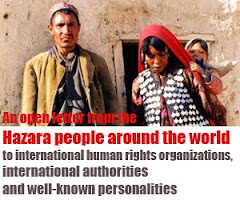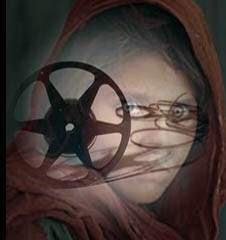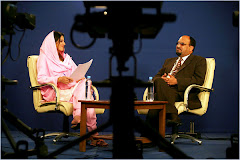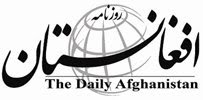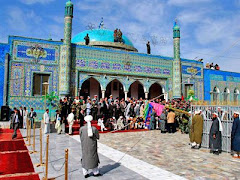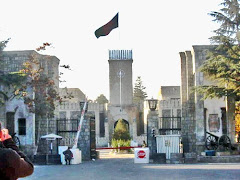
Photo by Robert Maier
‘Once there was a time, when there was love but against it there was a reaction of hate, there was the hand of friendship but against it there was the gun of enmity. There were struggles of men versus the hands of fate on the waves of life. There were only good memories left in front of hard times with harsh truths. There was thirst for power but there was still trend for forgiveness. There was darkness of disappointment but on the other side there was still hope for the brightness of the dawn. There were wails while there was still laughter. There was war and there was peace. There were massacres and there were survivors.
But once the time changed and cruelty took over and fear began ruling on everyone’s heart. Love was replaced by hate. Nothing was seen but redness of blood, bloods of weak human beings shed by the fiercer ones of the same kind. It was then time when love, and humanity were both taken away by the wind of time, instead darkness was covering everyone’s eyes. The little boys became grown men in overnight to pick up guns and kill proudly mankind of the hostiles when hostility was expanding day by day and people went to slavery; in such a situation cruelty had no limits!
In the twilight time it was hard to distinguish cries of men from the howls of wolves. There was only thirst for blood and there was passion for revenge and it continued generation to generation until one man came to save his nation breaking the chains of slavery and tearing the ropes of Juwalis and again the sign of hope began to blink in the eyes of millions of people.’
It all happened in the era when being Hazara was a crime on a land today called
***
Finally these days I am sighing for having finished the first step of work; my novel is completed and is now the time to talk with a good publisher/distributor.
Completing a fiction work in a second language has never been easy for me, however nowadays after two long years of hard work I am more and more convinced to believe in success when there is faith, strong motivation, determination and self-confidence behind even a very difficult work.
I began writing the first lines of my novel in January 2008 since the basic idea was bred in my mind, but then I quit writing it for I was blogging, studying and working to afford my life expenses.
In early 2009 I found a job in a bookstore ‘as a librarian’ when I was attracted towards literature, and then in the same year while studying cinema and I could not fund my short films, it was when broken heart I was really determined first to complete my novel. Since then I tried to allocate the little spare time I had to write and wrote it bit by bit and then there was no more time for my blogs and it cost me my silence in blogging thereafter.
In spite of all its hardships with a second language when it is not one’s first one, I was familiar with English for about ten years; two years of studying, three years of teaching experience and more than three years of translation experience and writing several essays in English had all helped me advance my English level to be able to write a novel, of course it may not be the same level of a native English writer as I was not born and raised in an English speaking country, but still I did my best.
***
As the title of the novel is not finalized, neither the publisher is specified yet, I wouldn’t say much about the outline, rather I would only say what kind of book it is and why it is worth mentioning about it here and now in advance –before it is published.
First I should thank Khaled Husseini who with his “The Kite Runner” broke the long-time taboo of talking about prohibited issues, hidden truths and untold stories in Afghanistan that were for long considered as ‘against “the fake” fragile national unity’, and he opened the way for the other emerging authors on stories of such kind.
My novel completes what Khaled Husseini had not reached to, in his novel “The Kite Runner”.
“The Kite Runner” with all its success, had just touched roughly a part of the existing harsh realities in the country but not uncovered it fully and many questions remained unanswered while in mine one I crossed the red-line borders and depicted all those untouched issues for my readers; the hidden layers of the long Hazara- Pashtoon conflicts in Afghanistan based on the existing and historical realities.
In a short saying my novel is a more completed and a more- in-depth version of Khaled Husseini’s and the good point is that; it is written by a Hazara Author, a remainder of the historical mass massacre of the Hazaras in Afghanistan thus it has its originality! It is written in a first person protagonist and in English of course.
You will read how a mass massacre and slavery affected the lives of four generations of a minor ethnic ‘the Hazaras’ through passage of time in Afghanistan and how a man struggles first to survive and then stand to save his nation.
My work is a novel, a fiction work, partly inspired by the lives of real people but is built up and mixed with fantasy elements, imaginations and is nourished by the help of historical facts, evidences and existing realities in our society.
By reading my novel ‘that doesn’t have a definite title yet’, you will be traveling to the real Afghanistan through forty years of life of the protagonist, sixty years of lives of his forefathers and will be feeling yourself a part of it, a part of the history of humanity on a part of the globe which is on the top of headlines of media of the world again these days.’
With this novel, I let you see the world through Chinese-like little eyes of a Hazara.
The story begins in
***
If you follow my blogs and my Face Book postings, you will know about it more, the soon there will be accords on its publication and distribution dates.
If you have read ‘The Kite Runner’ and liked it, I should say, definitely reading this one is a must!
The USA,
In advance,
With love,
From the core of my heart,
I send my salutes
To all my readers!
M. Amin Wahidi
CLICCA QUI per la versione Italiana di questo articolo














